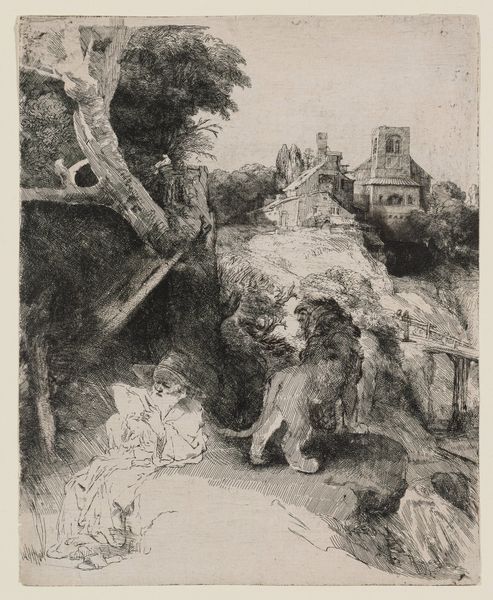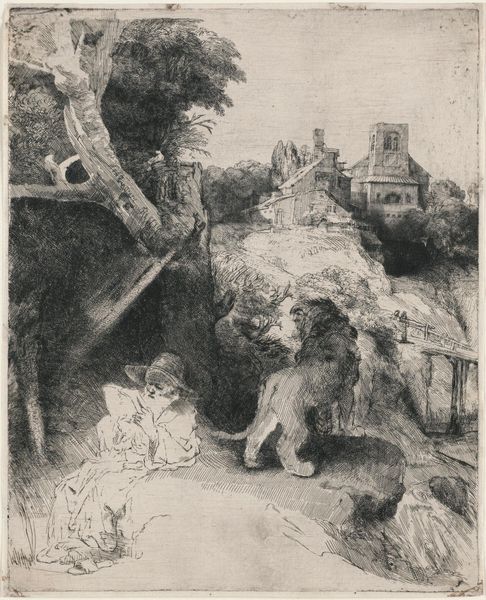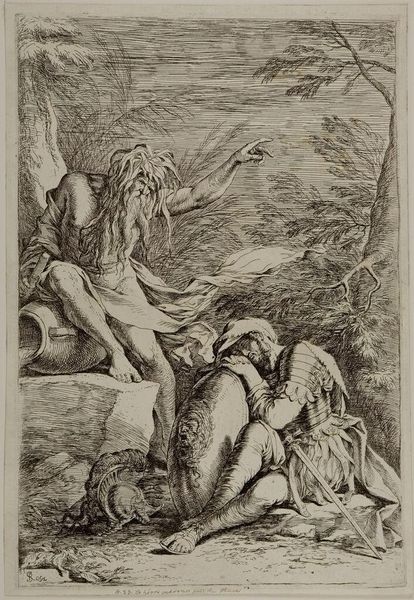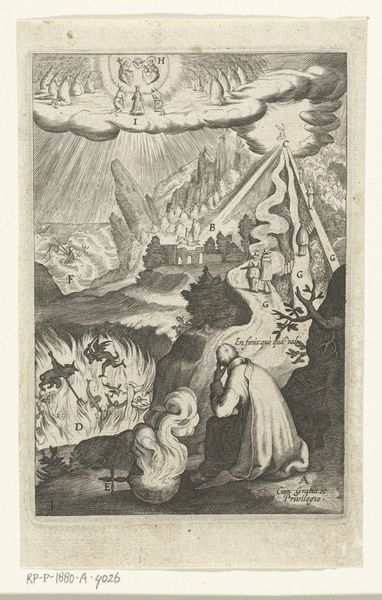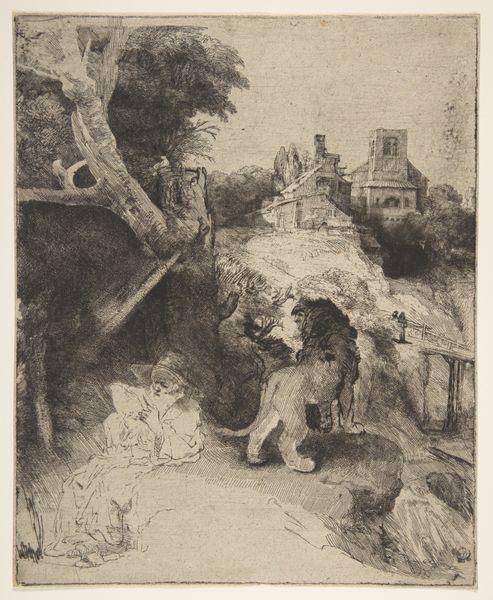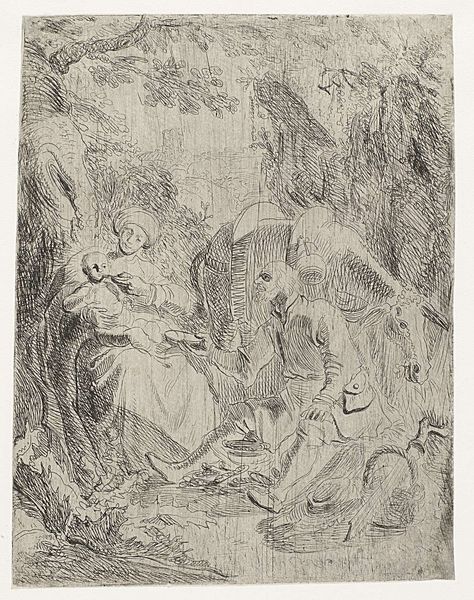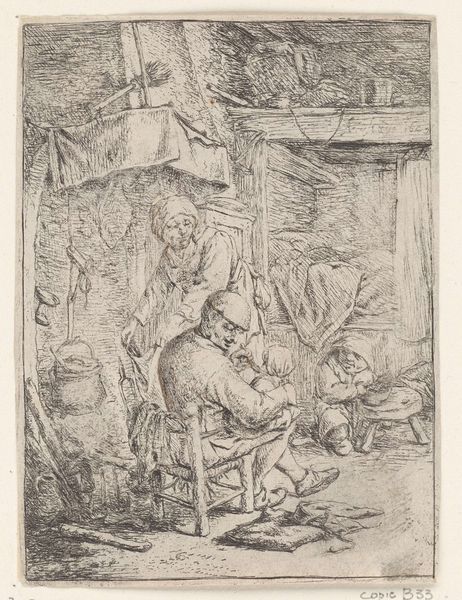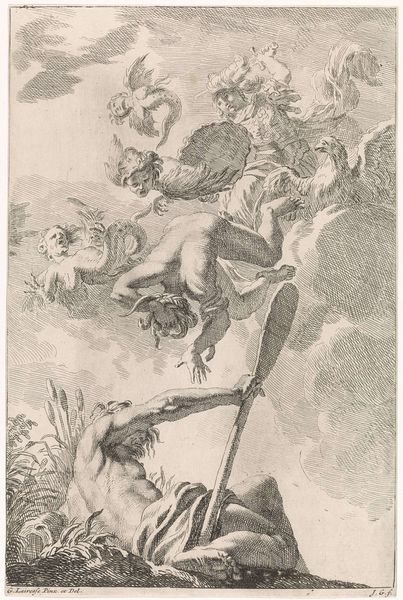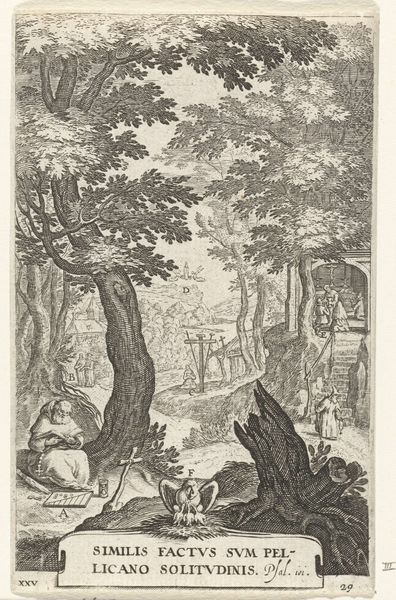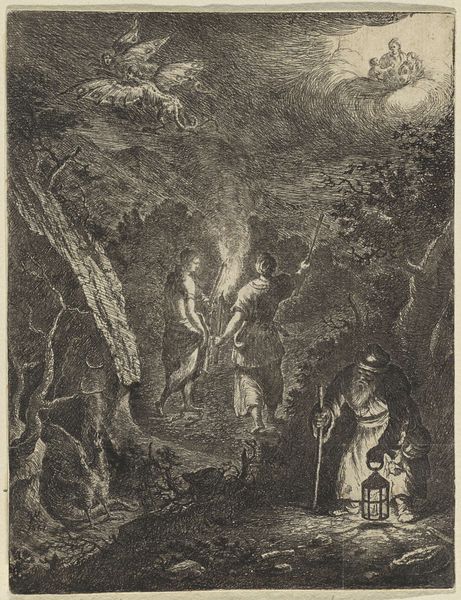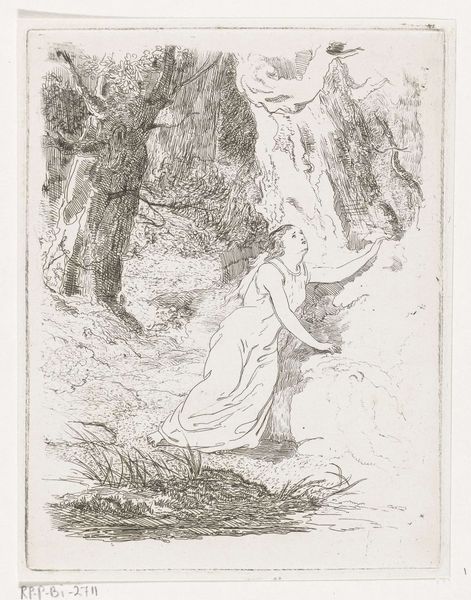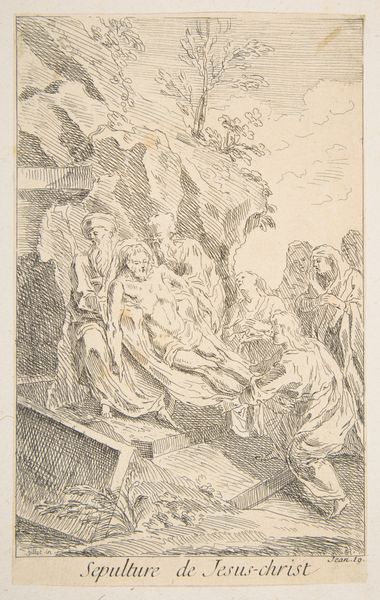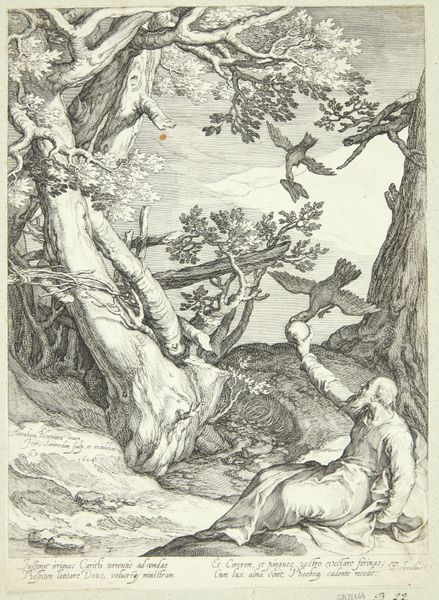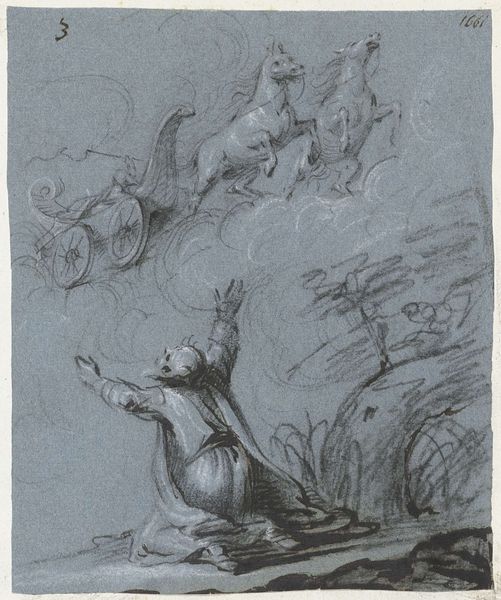
St. Jerome in an Italian landscape 1653
0:00
0:00
rembrandtvanrijn
Fitzwilliam Museum (University of Cambridge), Cambridge, UK
drawing, print, etching
#
drawing
#
narrative-art
#
baroque
#
dutch-golden-age
# print
#
etching
#
landscape
Copyright: Public domain
Rembrandt van Rijn created "St. Jerome in an Italian Landscape" using etching, a printmaking technique. It reveals a tension of geographical and cultural imagination. Rembrandt, a Dutch artist who rarely left Holland, sets the biblical scholar Jerome in an unlikely Italian setting, recognizable through the architecture. This blending of the familiar and the foreign reflects the Dutch Golden Age's fascination with Italy, driven by trade and artistic exchange, as well as the cultural politics between the Protestant North and the Catholic South. Note how the dark shadows contrast the lighter areas, creating a dramatic effect. Rembrandt manipulates the institutional expectations of religious art. Rather than depicting Jerome in a traditional, idealized manner, he places him in a more intimate, human context, blurring the lines between the sacred and the secular. The study of Rembrandt's etchings alongside period travelogues, economic data, and religious tracts enriches our understanding of the complex interplay between artistic production, cultural exchange, and social identity in the 17th century.
Comments
No comments
Be the first to comment and join the conversation on the ultimate creative platform.
